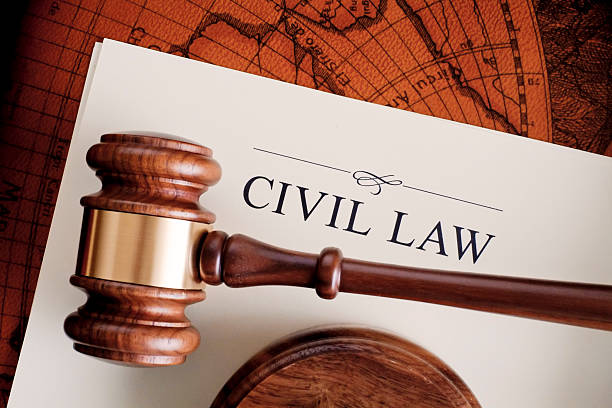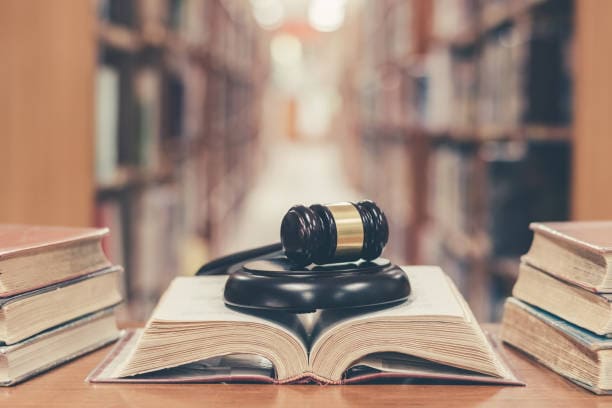Balance of probabilities is a type of standard of proof. Standard of proof refers to the level of certainty or degree of evidence that is needed to establish proof. It is a sort of a benchmark that courts and tribunals apply to decide if either side has proven the factual matter.
Standard of proof is applicable in both civil proceedings and criminal law proceedings. Courts rely on these standards of proof to make a decision or decide the outcome of a matter.
For criminal proceedings, the standard of proof is called beyond reasonable doubt. In other words, the accused’s guilt must be proven beyond reasonable doubt in order for the Court to convict the accused of the crime.
On the other hand, the civil standard of proof is balance of probabilities. It is the standard of proof in the case of all civil proceedings. The Evidence Act (1995) codifies this standard of proof for civil cases.
In simple terms balance of probabilities means that the court is satisfied that an event occurred if the court considers that the evidence indicates that the event more likely occurred, than it did not. Beyond reasonable doubt is a much higher standard of proof.
Balance of Probabilities Framework
The Evidence Act 1995 also provides a framework for the court to use to decide if the standard of proof has been satisfied. This framework includes the following points among which are two very important considerations:
- The nature of the cause of action or defence,
- The gravity of the matters alleged, and
- The nature of the subject matter of the proceedings.
Importantly, courts take a holistic approach when trying to determine a case based on this standard of proof. Both sides must provide ample of cogent evidence to the court.
Once both sides provide all evidence, the court must be satisfied that one case is more plausible than the other on the balance of probabilities.
In fact, there is also a lot of room for discretion in how much weight a court gives to the considerations under the framework as mentioned above. Do lawyers also use balance of probabilities? Absolutely. Lawyers on both sides often use balance of paobabitlies framework to determine the strengths and weaknesses of the matter at hand.

What Are Examples of Civil Law Cases?
Broadly, civil law matters involve disputes over money or property. For instance, parties can enter into conflicts due to loan agreements or damages from a motor vehicle accident. Largely they can either be due to money or due to some personal injury or infringement of personal rights.
The plaintiff brings a claim forward in civil cases against the defendant. As mentioned above, the court must then be satisfied that the defendant is guilty on the basis of balance of probabilities.
If convinced, the court will then proceed to make charges against the defendant. For instance, the defendant can receive a charge of providing some form of compensation to the plaintiff for whatever loss or injury the plaintiff suffered.
Given below are some examples of civil law matters:
- Employment disputes
- Immigration law cases
- Accident at work claims
- Clinical negligence claims
- Certain types of family law cases
- Discrimination or assault at work claims
- Road traffic accident offences and cases
When presenting your arguments to court on the standard of proof of balance of probabilities, you have to prove that the likelihood of your version of events happening was higher than the likelihood of the opposite side’s version of events happening.
Five Most Common Civil Law Cases
In this section, we outline the five most common types of civil law matters. In all these cases, the balance of probabilities is used to determine an outcome of the case.
1. Torts
If one party accuses another party of causing them some kind of physical or emotional harm, it is a tort matter that falls under civil law. The harm can relate either to personal harm, or it can be related to financial security or safety of their property.
2. Complaints Against City
These cases occur when the plaintiff makes an accusation, claiming that certain city laws or city policies have caused harm to them and other citizens. These kind of claims are generally settled out of court except in some rare circumstances.
3. Class Action Lawsuits
A class action lawsuit occurs when a group of people make claims against a common defendant. For instance, a group of employees making a claim against their employer.
4. Property Disputes
Property disputes can either include damage to one’s property, or disputes around property ownership. For example, parties may face disputes if they are fighting over line boundaries when their properties are neighbouring each other.
5. Contract Disputes
Contract related conflicts occur when parties fail to comply with their contractual obligations. This usually happens in case there are poorly written contracts that consist of unclear terms.

Importance of Seeking Legal Advice From Solicitors
You may now have understood that in civil trials it is important to build a strong case that consists of sufficient argument backed by sufficient evidence. If this evidence can prove the other party’s guilt on the balance of probabilities in local court, supreme court or federal court, then you can win the case.
To do so, you must ensure to obtain legal advice or legal representation. At JB Solicitors, we have a wealth of experience in dealing with civil litigation matters.
We offer fixed-fees for some of our legal services. To know the cost of our services, or for other enquiries about civil law matter or any other legal matter, do not hesitate to contact our team of leading professionals.
For more information, contact our team of lawyers.
